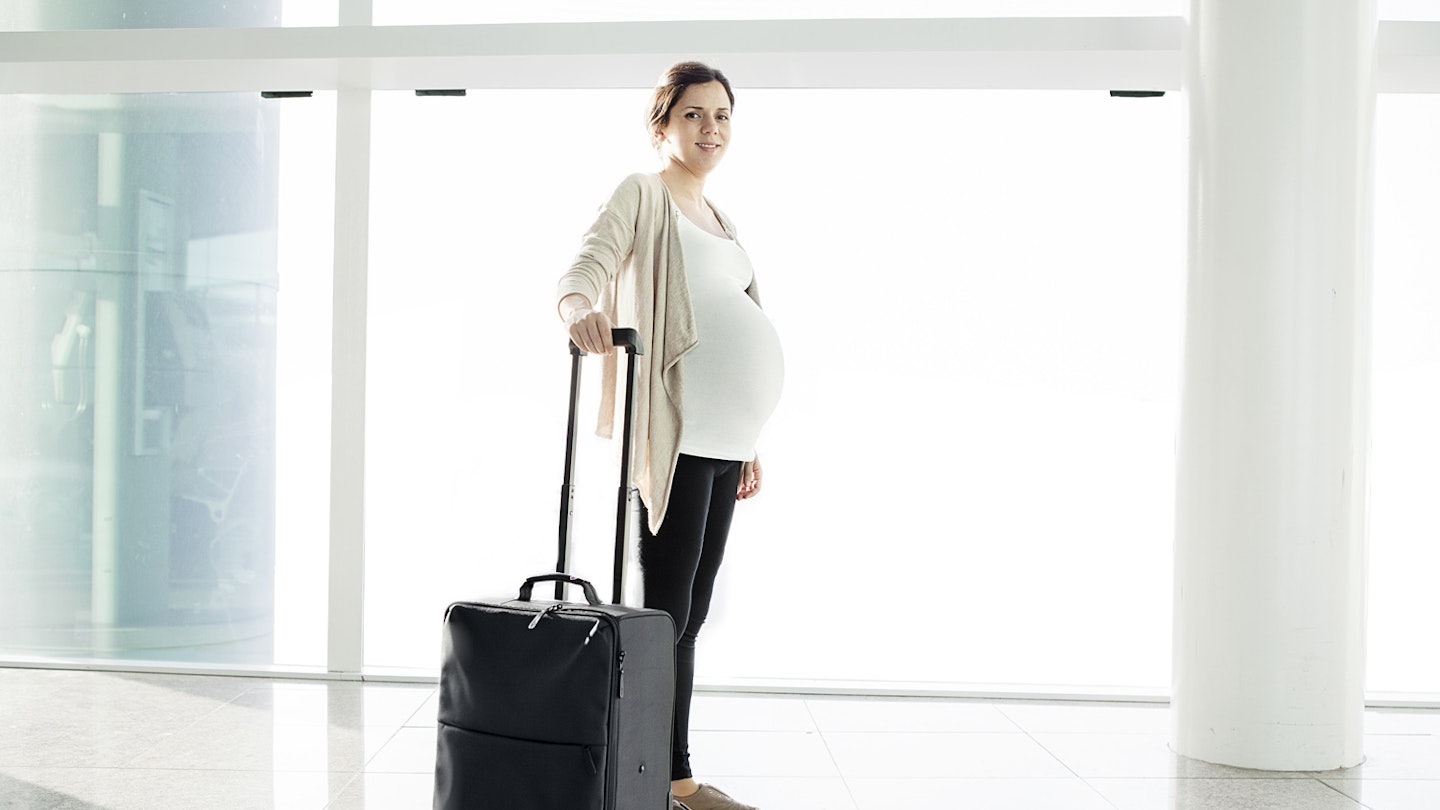If you're nervous about flying when pregnant try not to worry too much, travelling by air is generally safe if your pregnancy is uncomplicated. If you are a bit wary there are some simple guidelines that should be followed, and we have some useful, expert tips below to make your journey more comfortable too.
Dr Vanessa Mackay, consultant obstetrician and gynaecologist, gives us the lowdown on flying while pregnant. Everything from the regulations to handy tips to make your trip as easy as possible. For now, here’s all you need to know to have a safe and comfortable trip while pregnant.
Is it safe to fly when pregnant?
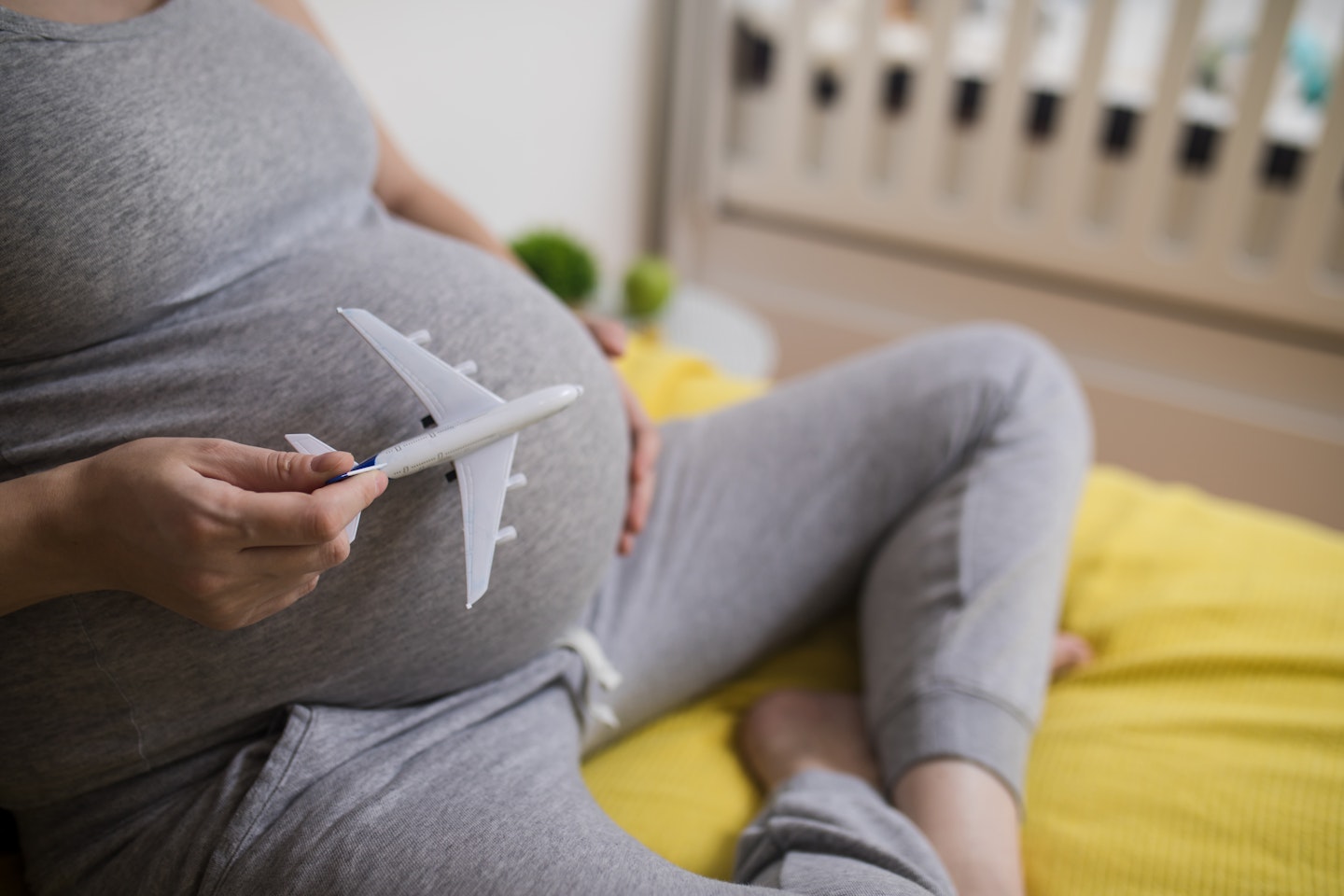
It’s usually perfectly safe to fly during pregnancy. There’s absolutely no evidence to suggest that flying in your third trimester increases the chances of early labour or your waters breaking. However, check with your doctor before flying if you have had any medical issues during your pregnancy such as spotting, diabetes, high blood pressure, excessive morning sickness (hyperemesis gravidarum), a previous miscarriage or early birth.
At how many weeks pregnant is it safe to fly?
Guidelines from The Royal College of Obstetricians and Gynaecologists suggest that it’s safest to travel before 37 weeks if you have a single pregnancy. "After that time, labour could occur at any time, so it’s unwise to fly," explains consultant obstetrician and gynaecologist Dr Vanessa Mackay. "If you’re pregnant with more than one baby, it’s wise to lower that limit to 32 weeks."
13 tips for flying while pregnant:
Flying while pregnant tips
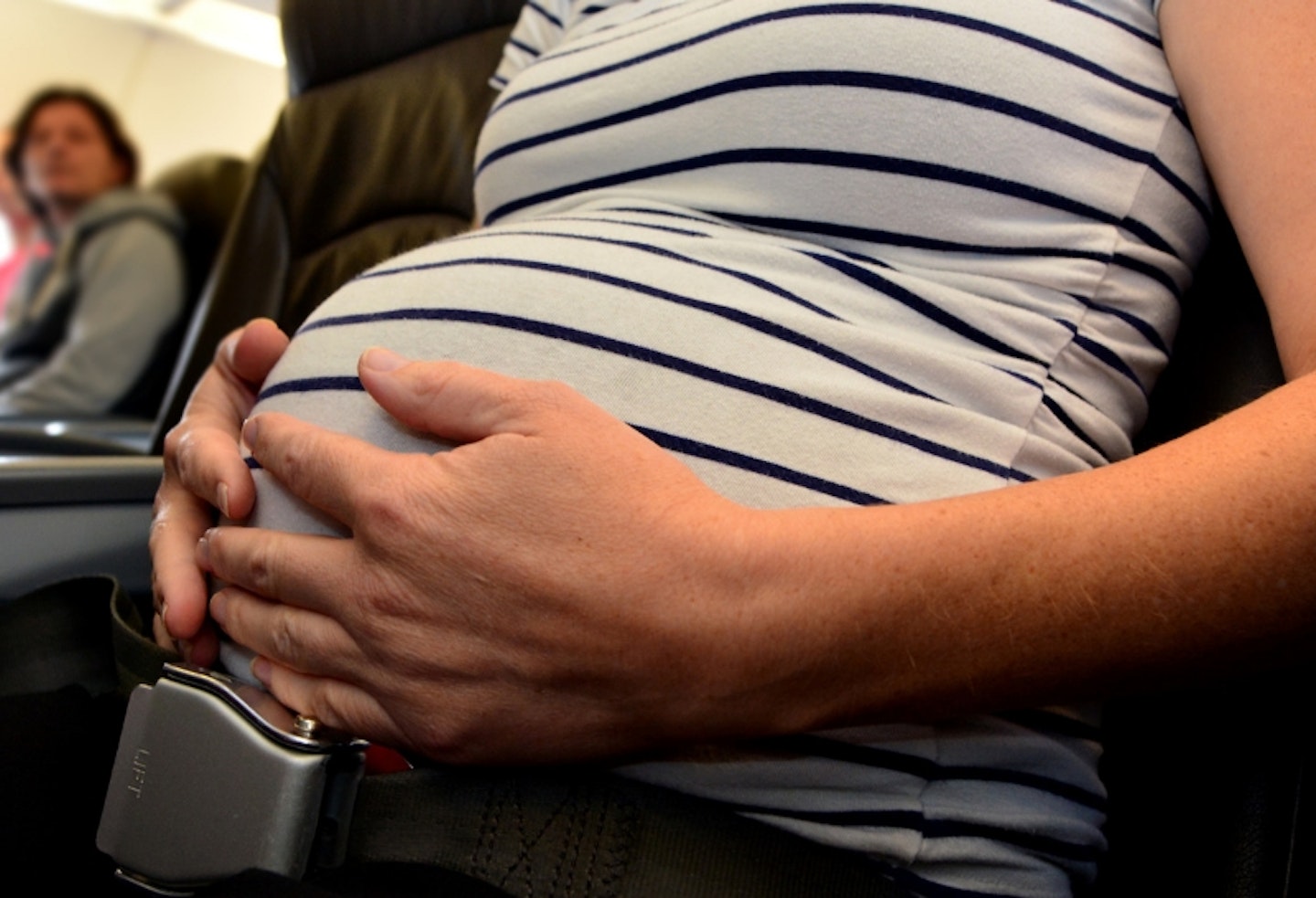 1 of 13
1 of 131) Wear a pair of compression socks
Ask your midwife for elastic compression socks for your flight. She will measure your legs and give you a pair that are far more suitable for use during pregnancy than the travel socks on sale in chemists. "These are particularly important for long-haul flights," says Dr Vanessa. When pregnant, slower circulation increases the risk of blood clots, which can travel to your lungs.
 2 of 13
2 of 132) Pack your paperwork
Check that your travel insurance covers you for pregnancy-related medical care and take your maternity notes with you. "This is really important," says Dr Vanessa. "They’ll give any medical professional an accurate picture of your pregnancy." Also, apply for a free Global Health Insurance Card if you’re travelling to a foreign country. The GHIC card replaces the EHIC card, and is now valid in the EU, and around the world.
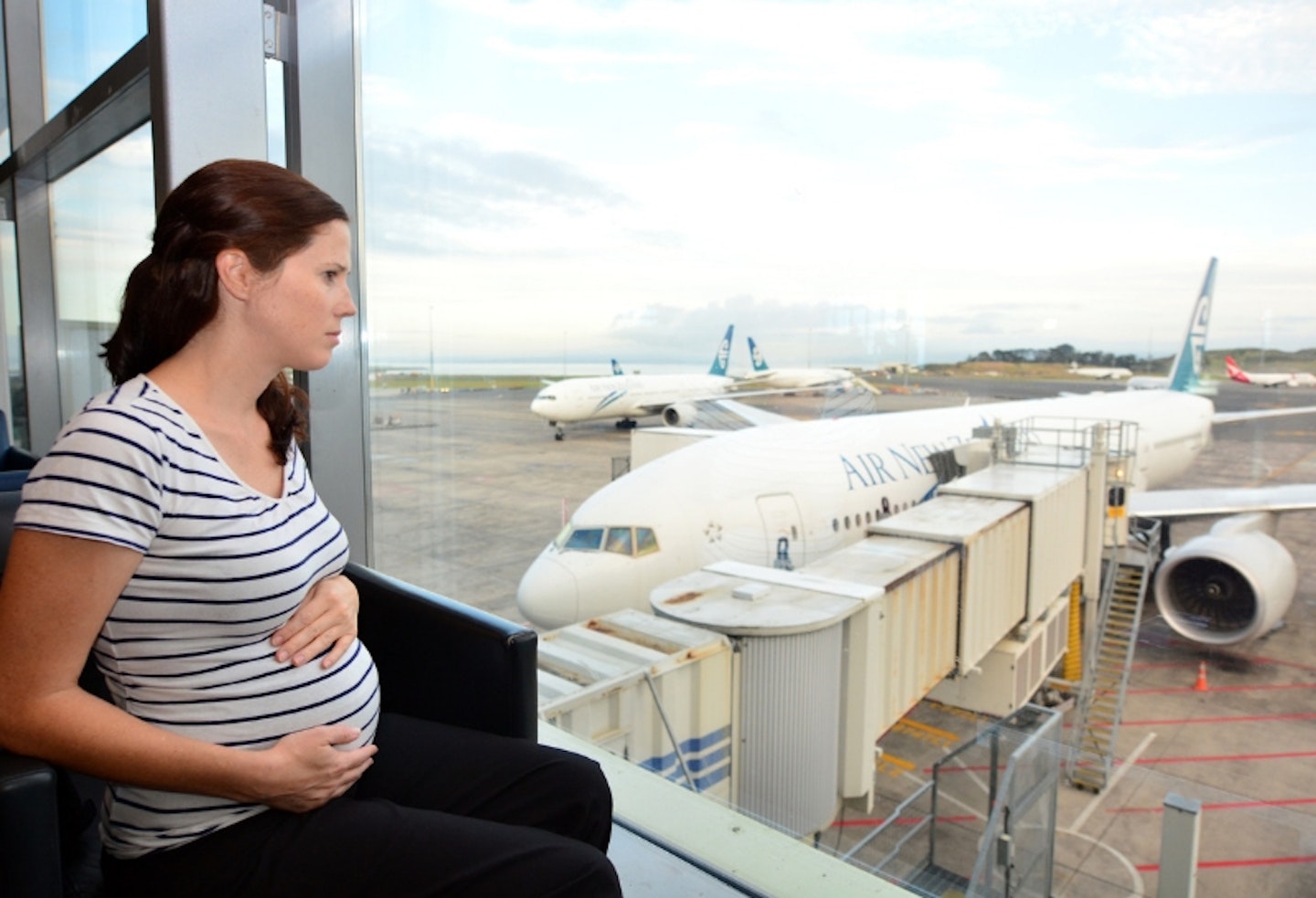 3 of 13
3 of 133) Stay calm
If you’re particularly nervous about flying, take proactive steps to stay as calm as possible, both before and during the flight. The stress hormone cortisol can cross your placenta and affect your unborn baby. Snack on pumpkin seeds and bananas, both rich in tryptophan which helps your body produce melatonin and serotonin, boosting feelings of well-being. Massage is also a great stress buster, so ask your travel partner (if you have one) to rub your lower back.
 4 of 13
4 of 134) Drink plenty of fluids
The pressurised cabin on a plane can make you more dehydrated and lead to oedema (water retention in the lower limbs). Drink more than the recommended amount of 1.5 litres of fluid a day to counter it. "Aim to drink a full cup of water every hour," says Dr Vanessa. "Drink more if your mouth feels dry or you feel thirsty." Avoid drinks containing caffeine as these can dehydrate you. "But it’s not necessary to avoid salty foods, like peanuts or pretzels, as long as you’re drinking enough fluids," adds Dr Vanessa.
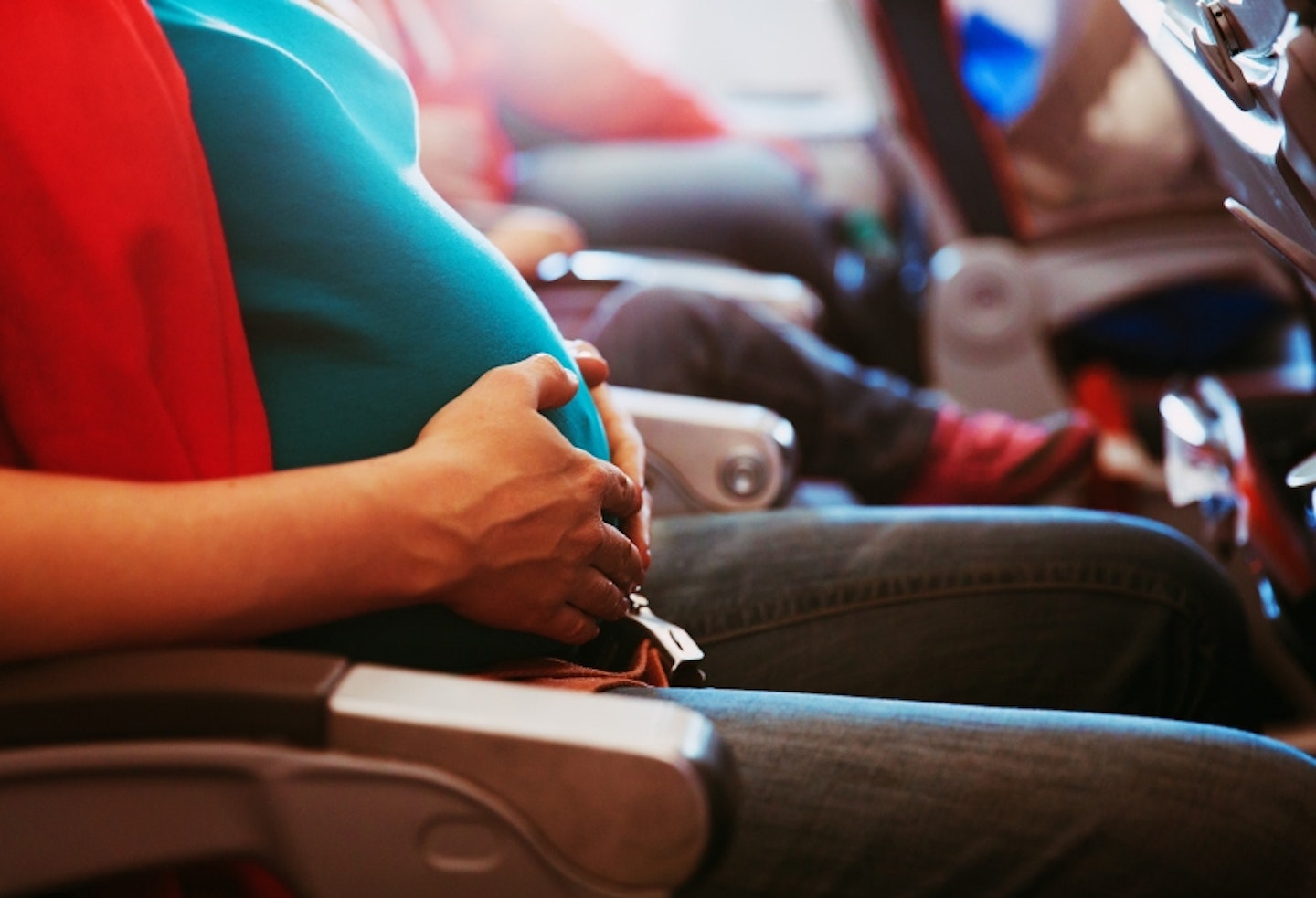 5 of 13
5 of 135) Try not to panic if you do feel sick
Even if your morning sickness has subsided, it’s common to feel sick during a flight if you're pregnant. "It’s just the motion that causes you to feel nauseous," says Dr Vanessa. Book a seat in the middle of the cabin, where you’ll experience less movement, and take a pack of ginger biscuits with you. Nibbling on one of them may help ease the nausea.
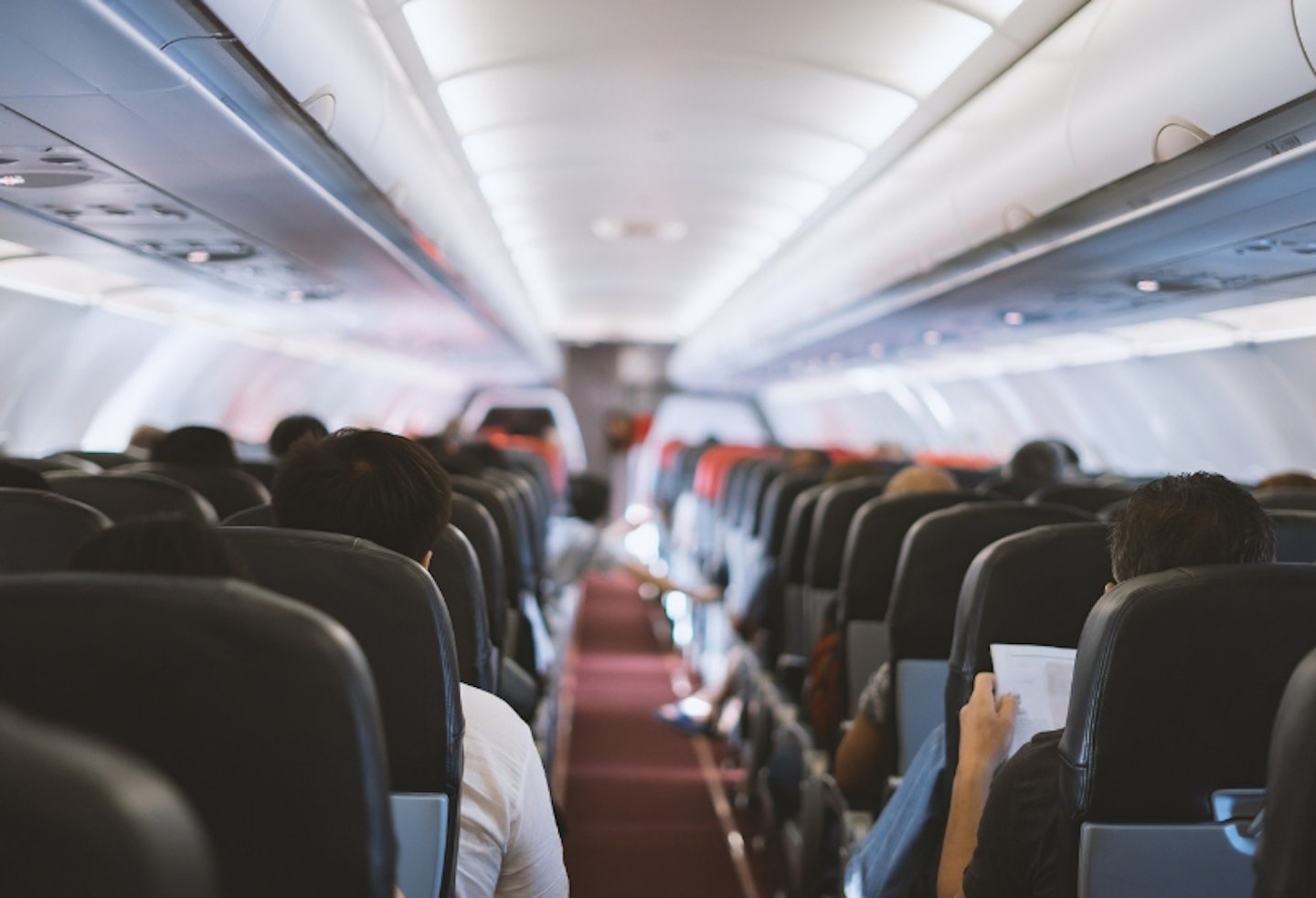 6 of 13
6 of 136) Walk down the aisle
The muscles in your legs act as a pump to encourage the veins to empty upwards, so take regular walks along the aisle of the plane to keep these working. "When you’re sitting in your seat, circle your ankles and move your feet around every half an hour to help the blood flow," adds Dr Vanessa.
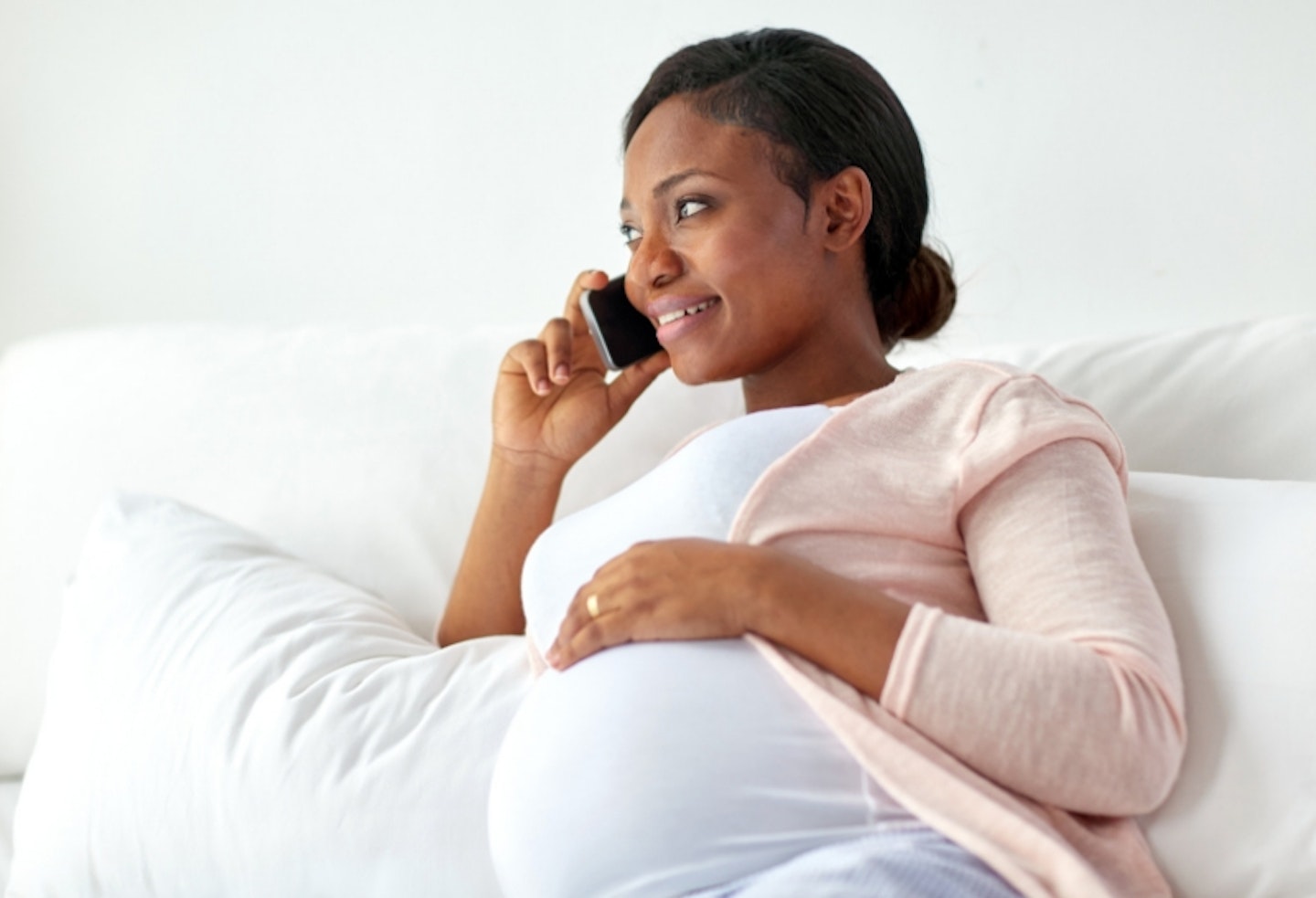 7 of 13
7 of 137) Quiz your airline
It doesn't matter if you're flying on a budget airline, or want a luxury long haul flight, before you book your ticket, find out what the airline’s policy is for flying when pregnant. Check the airline’s website, or call its customer service help desk. If you’re over 28 weeks pregnant, most airlines require a letter from your midwife or doctor to say that your pregnancy is low-risk and healthy. This is simply an assurance that there’s little risk of you going into early labour or your waters breaking early.
Some airlines require a particular form to be completed whereas some ask for medical reassurance from an earlier stage of pregnancy. Consider how pregnant you’ll be on your return flight – if you’re travelling in your 27th week of pregnancy, you might return after your 28th week.
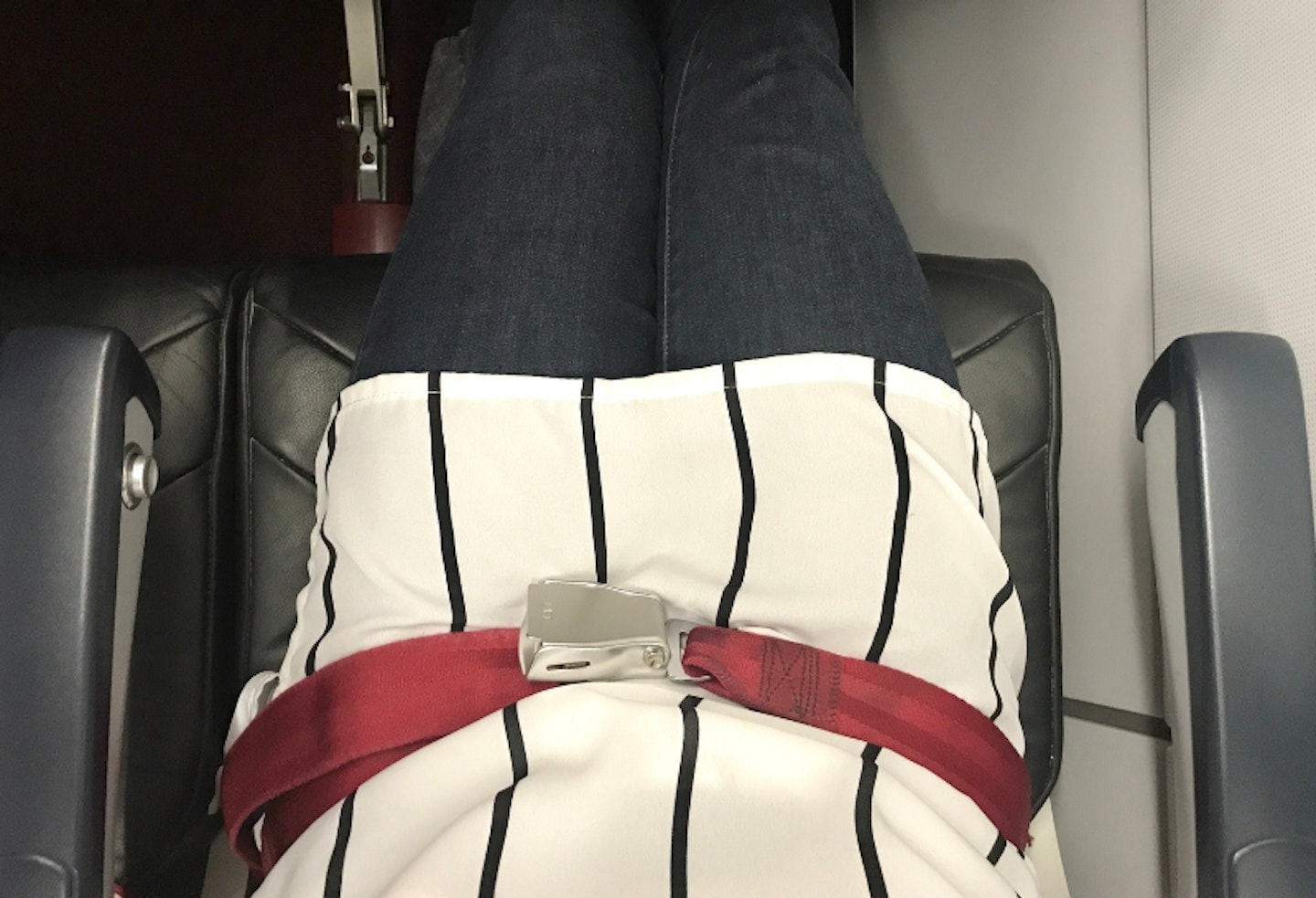 8 of 13
8 of 138) Seatbelt
Make sure to adjust your seatbelt properly and position it under your bump across your pelvis. You can always ask the cabin crew for a seatbelt extender if it is too small as these are usually kept on board.
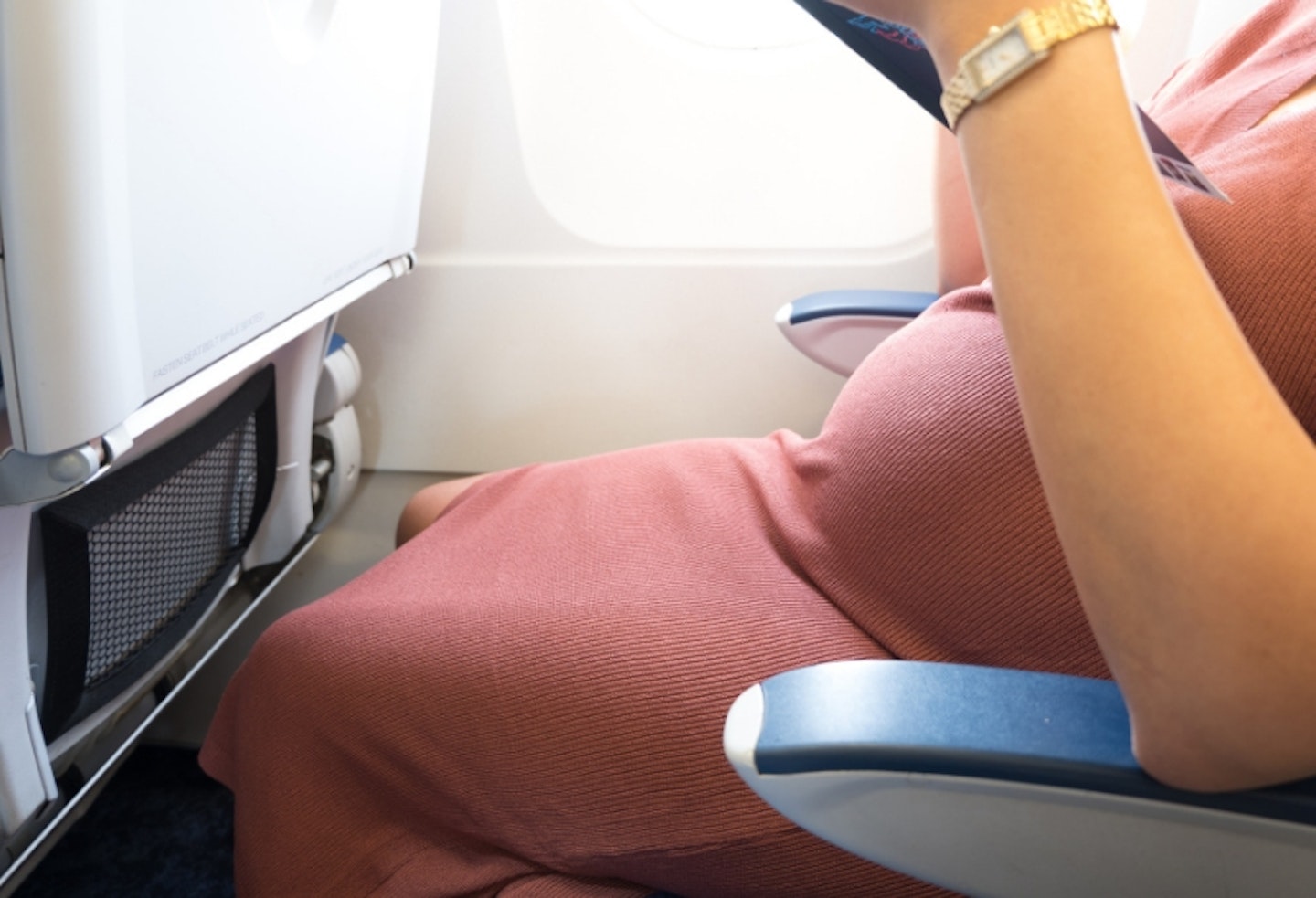 9 of 13
9 of 139) Wear loose fitting clothes
Wear layers so that you can keep warm, but take them off if you are cool. Wear loose-fitting clothes so that you will feel comfortable and always choose comfortable shoes as this will also help with swelling.
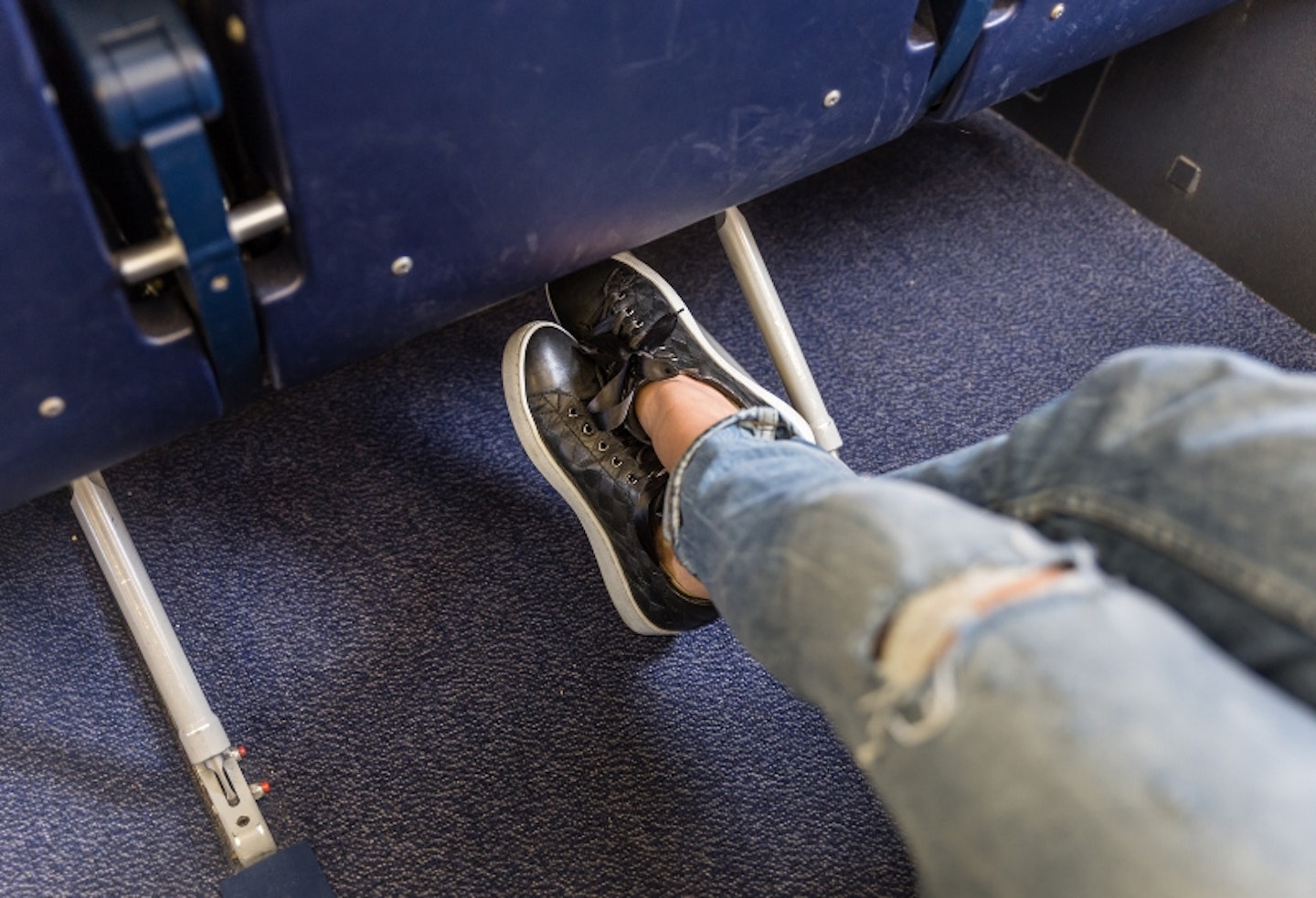 10 of 13
10 of 1310) Stretch
You'll be sat down on the flight for a while, so stretch your legs out and gently flex your feet to stretch your calf muscles. Rotate your ankles and wiggle your toes to promote good circulation. You can also roll your shoulders and stretch your neck by dropping your ear to your shoulder. If you're flying when pregnant it's a good idea to get an aisle seat if you can. This will make it easier to get up and wander around, or to get to the toilet quickly!
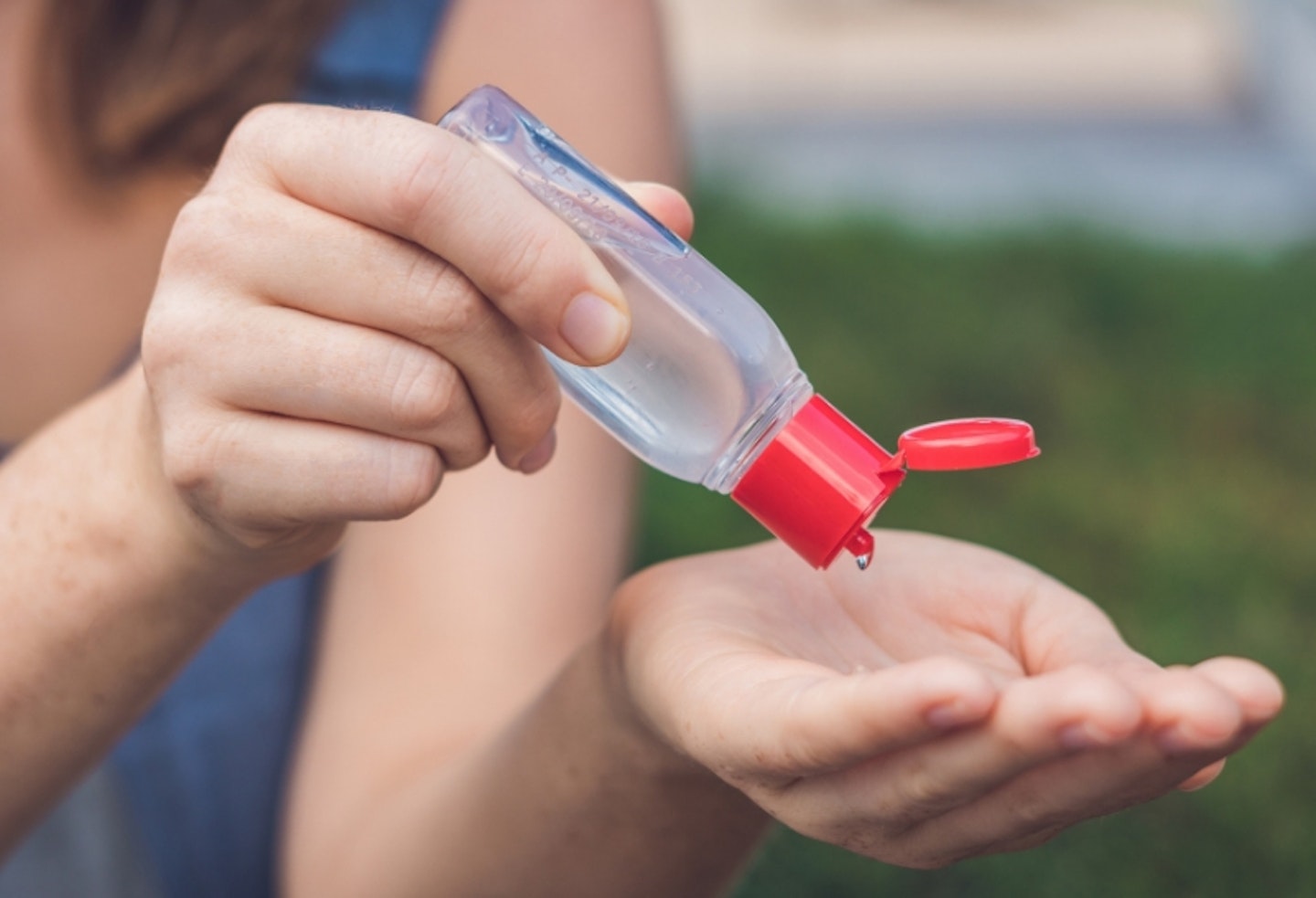 11 of 13
11 of 1311) Protect yourself against germs
Planes are often breeding grounds for colds and germs. When you are pregnant you are even more vulnerable to catching something. Arm yourself against germs by using hand sanitiser or wipes to clean the surfaces around your seat. Since Covid, it is also becoming more common for people to wear a mask to prevent the spread.
 12 of 13
12 of 1312) Drink mint or ginger tea
Mint tea and ginger tea are great for nausea. You can take tea bags with you in your hand luggage and the flight attendants can make them for you. You could also take some fresh mint/grated ginger to pop in hot water.
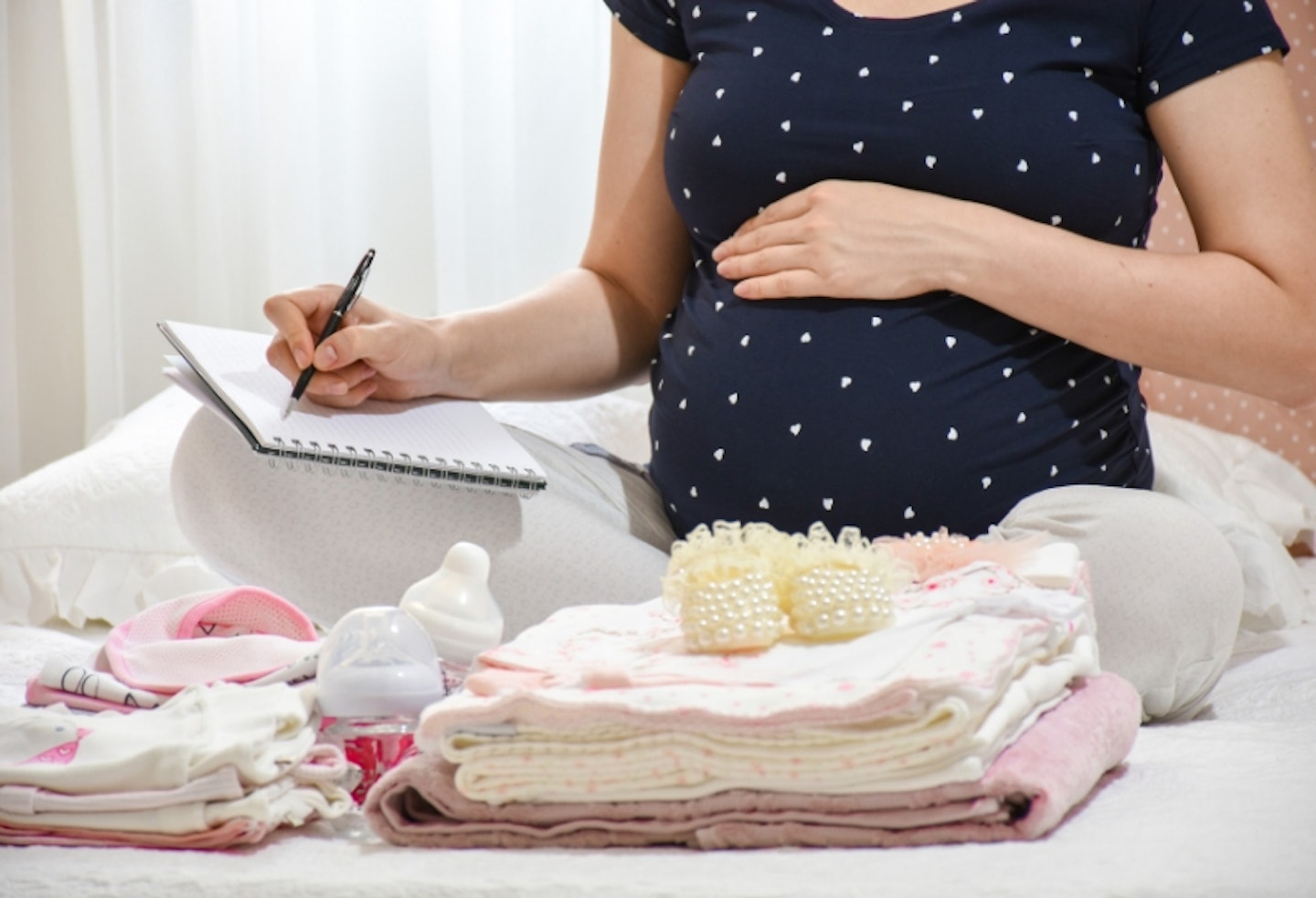 13 of 13
13 of 1313) Pack wisely
If you are putting bags into the hold, ensure that you have all your essentials in your hand luggage. You could be unlucky and be separated from your luggage so you don't want to be without your necessitites.
Anna Sky Magliola is a freelance writer for Mother&Baby and has worked fo_r Bauer Media (Mother&Baby's parent company) for 16 years as a digital editor. She's a mum to a two-year-old little girl and loves to travel with her family, both long and short haul._
